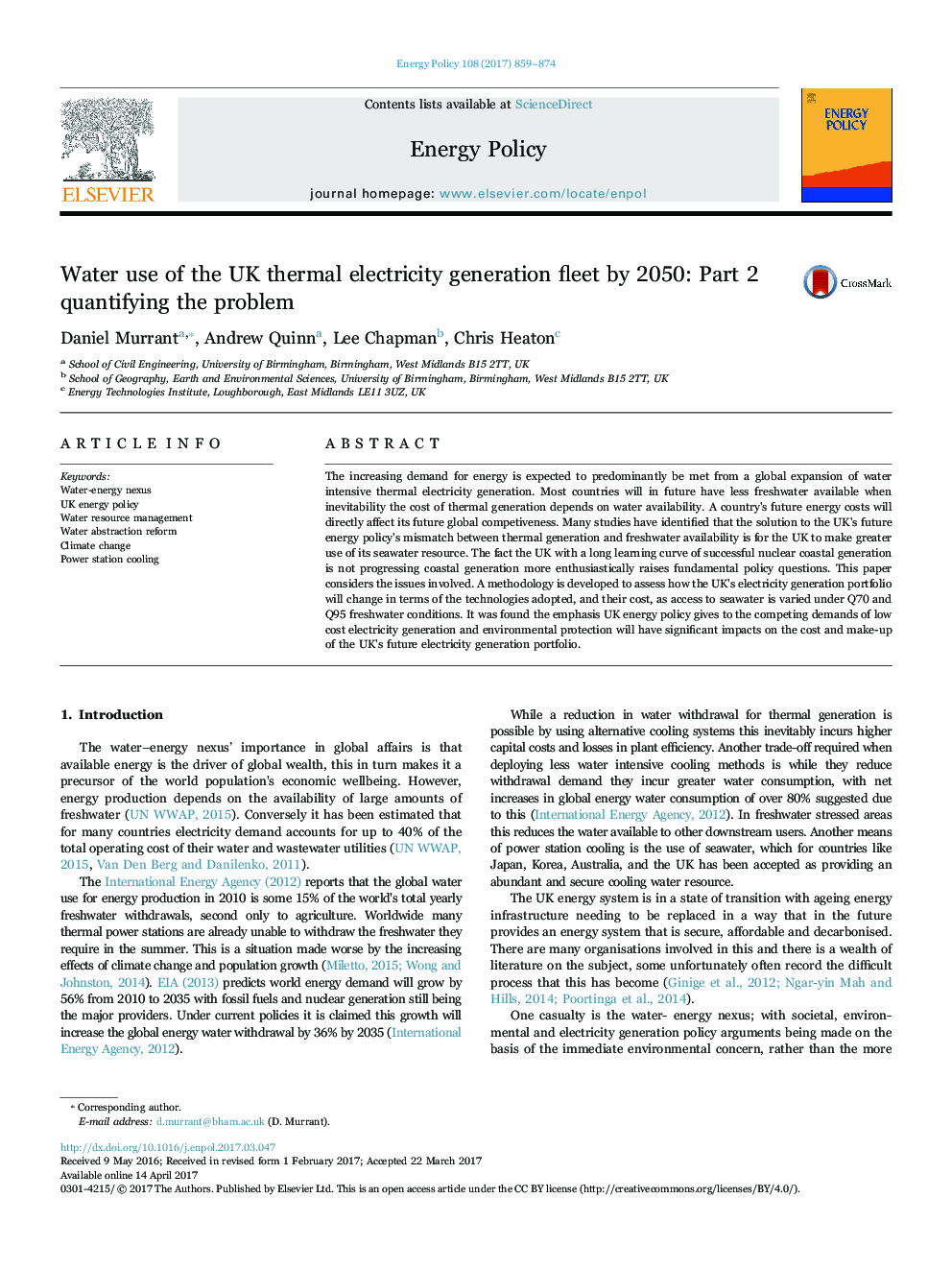| Article ID | Journal | Published Year | Pages | File Type |
|---|---|---|---|---|
| 5105652 | Energy Policy | 2017 | 16 Pages |
Abstract
The increasing demand for energy is expected to predominantly be met from a global expansion of water intensive thermal electricity generation. Most countries will in future have less freshwater available when inevitability the cost of thermal generation depends on water availability. A country's future energy costs will directly affect its future global competiveness. Many studies have identified that the solution to the UK's future energy policy's mismatch between thermal generation and freshwater availability is for the UK to make greater use of its seawater resource. The fact the UK with a long learning curve of successful nuclear coastal generation is not progressing coastal generation more enthusiastically raises fundamental policy questions. This paper considers the issues involved. A methodology is developed to assess how the UK's electricity generation portfolio will change in terms of the technologies adopted, and their cost, as access to seawater is varied under Q70 and Q95 freshwater conditions. It was found the emphasis UK energy policy gives to the competing demands of low cost electricity generation and environmental protection will have significant impacts on the cost and make-up of the UK's future electricity generation portfolio.
Related Topics
Physical Sciences and Engineering
Energy
Energy Engineering and Power Technology
Authors
Daniel Murrant, Andrew Quinn, Lee Chapman, Chris Heaton,
